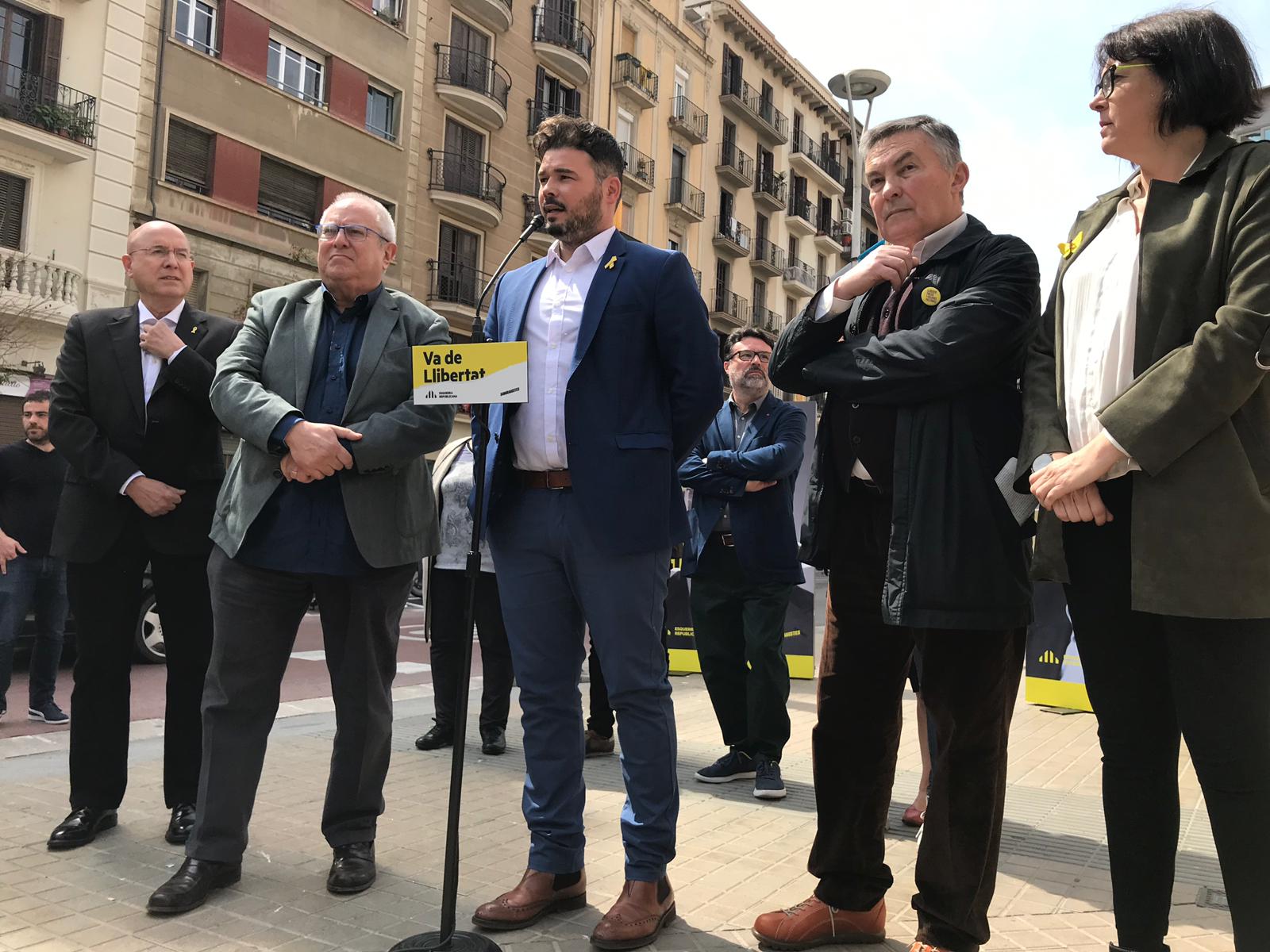The campaign for the 28th April Spanish general election continues and, as expected, political parties continue to reveal their proposals. Whilst En Comú is continuing to expand its initiative for Criminal Code reform, pro-independence Catalan party ERC is supporting a "freedom law". They plan to take a bill to the Congress in Madrid about "freedom, dialogue and returning the conflict to politics", possibly accompanied by some show of popular support, for example signing of a petition.
The plan was announced by candidate Gabriel Rufián in a press conference responding to news agency EFE. It was later expanded upon at an rally in Barcelona, by the city's historic Model prison, where Rufián was accompanied by legal scholar Joan Queralt, former minister Joan Manuel Tresserres and candidates Montse Bassa and Diana Riba, both family members of prisoners.
Rufián avoided giving a specific answer when asked if it will be an amnesty law for the prisoners, which would require them to have been sentenced. He explained instead that the proposal has three parts: a dialogue and negotiation round table; a referendum in Catalonia; and, finally, a "bill to lift the whole legal burden on the independence movement".
The number two on the party's candidacy for Congress said that it will be a law to "try to return to politics" and to "lift the legal lawsuits" against the politicians currently on trial in Madrid and against Catalan mayors facing charges. "We can't talk with political prisoners on the table," he said.
Queralt, who also spoke at the rally, said that "that which never should have been in the courts" has to be taken from them. He added that a "lasting measure" is needed, as is the "premise that what's happened in Catalonia cannot be considered a crime".
Finally, Rufián discussed En Comú's proposed Criminal Code reform, saying it could be "useless" because "what's been done isn't a crime". For that reason, he also rejects the idea of a pardon.

